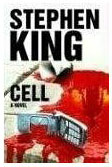 Over the years I’ve read a dozen or so Stephen King books, maybe even a couple more than that. Most of them did a pretty good job of keeping my interest and creating suspense. And if there was any gore or unpleasantness, well it was only a book so I didn’t actually see it (like, say, in a movie). A few bordered on the hokey, but most were good, interesting, and sometimes even a little scary works of fiction.
Over the years I’ve read a dozen or so Stephen King books, maybe even a couple more than that. Most of them did a pretty good job of keeping my interest and creating suspense. And if there was any gore or unpleasantness, well it was only a book so I didn’t actually see it (like, say, in a movie). A few bordered on the hokey, but most were good, interesting, and sometimes even a little scary works of fiction.
This one starts right off. No, really. A few pages into it the whole premise happens. And the rest of the book is just what happens after. But King develops the characters reasonably well and there is enough subsequent action and suspense to keep the reader reading. It might have drug a little a couple times but not much and it made for a few late nights reading when I didn’t want to stop. If you like Stephen King then I would recommend it. My favorite of his is still Salem’s Lot, although I read it many, many years ago. Hope I am remembering it right! 😉
Anyway, here’s what Publisher’s Weekly had to say about Cell:
What if a pulse sent out through cell phones turned every person using one of them into a zombie-like killing machine? That’s what happens on page six of King’s latest, a glib, technophobic but compelling look at the end of civilization—or at what may turn into a new, extreme, telepathically enforced fascism. Those who are not on a call at the time of the pulse (and who don’t reach for their phones to find out what is going on) remain “normies.” One such is Clayton Riddell, an illustrator from Kent Pond, Maine, who has just sold some work in Boston when the pulse hits. Clay’s single-minded attempt to get back to Maine, where his estranged wife, Sharon, and young son, Johnny-Gee, may or may not have been turned into “phoners” (as those who have had their brains wiped by the pulse come to be called) comprises the rest of the plot. King’s imagining of what is more or less post-Armageddon Boston is rich, and the sociological asides made by his characters along the way—Clay travels at first with two other refugees—are jaunty and witty. The novel’s three long set pieces are all pretty gory, but not gratuitously so, and the book holds together in signature King style.
Have you read this book? If so (or if not), what do you think?
